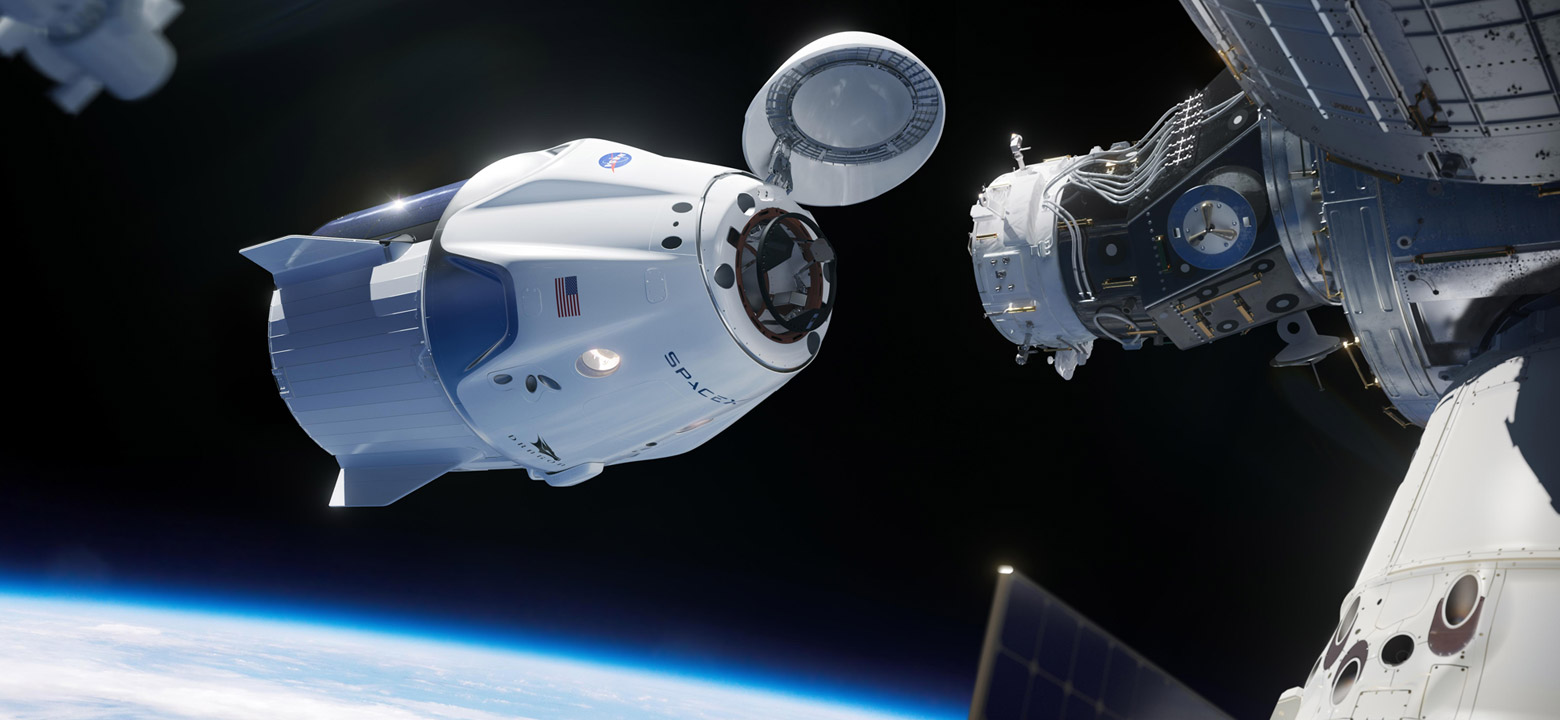
Commercial spaceflight is one of the areas of aerospace research and development that's been receiving the most attention lately. Multiple private companies are working on their own projects to help launch humans into space in a safe, fast, less expensive fashion than traditional launches. Here are some of the companies with the most exciting spaceflight projects in the works:
Elon Musk's SpaceX recently made headlines for their successful abort test—a test of how the equipment would respond in the event of a potentially catastrophic problem. After the Dragon detected an engine problem, it detached from the Falcon 9 rocket, engaged its own rocket engines, and eventually safely splashed down in the ocean. This is the final test before a crewed demonstration flight between earth and the International Space Station. Right now, the demonstration flight is projected to take place in the second quarter of 2020.
One of Bigelow's projects represents the next step in commercial spaceflight: private space stations. The B330 is a “fully autonomous stand-alone space station,” with a full suite of life support systems and the ability to house six crew members, the next evolution of NASA's TransHab concept. The company is also developing the Bigelow Next-Generation Commercial Space Station, effectively a complex of multiple B330 modules. In addition to use as a private space tourism facility, B330 modules can also be employed for research and manufacturing use. Initially, the company has an agreement with United Launch Alliance to send a B330 unit into space using an Atlas V rocket in 2020, but the Atlas V proved insufficient. Right now, the only rocket estimated to be capable of carrying the module is the Vulcan, which is currently still under development.
Like Bigelow Aerospace, Axiom is hoping to be one of the pioneers of private space stations. According to the company, their vision “is to make living and working in space commonplace as a means to sustained deep space exploration and to improve the quality of life here on Earth.” With the International Space Station slated to retire in 2024, Axiom Space is hoping that Axiom Station will be able to take up the mantle and provide for a continuous human presence in low earth orbit. At first, the Axiom Station modules will connect to the ISS. Over time, it will take over to provide space for research and space tourism. In July 2018, the company announced their intention to offer tickets for an eight day long stay on the station, including a roughly two-week training period, at a price of $55 million.
2019 was a rough year for Boeing, but the company's Starliner is a promising project for commercial spaceflight. At a diameter of 15 feet, the Starliner is slightly larger than the Apollo module. It is intended to transport up to seven people, remain in orbit for up to seven months at a time, and be reusable for up to ten missions with a six month maintenance period between each. Developed as a way to ferry scientists to the ISS, and, in the future, tourists to private space stations, the capsule had an uncrewed test flight in December of 2019. During the flight, it experienced trouble with its mission clock. This caused it to use up too much fuel before it could dock with the ISS, but it still managed a successful landing in New Mexico two days later. The Boeing Starliner's first crewed test flight is projected to happen in mid-2020.
Virgin Galactic is developing commercial spacecraft, with the goal of servicing both researchers and space tourists. Virgin has been promising commercial spaceflight for a long time, but it appears that they're nearing their goal with a suborbital rocket-powered spaceplane called the VSS Unity. After a number of setbacks, including the crash of the VSS Enterprise, the VSS Unity completed a series of successful glide tests, a powered flight test, and a crewed suborbital spaceflight. After its successful crewed flight test in February of 2019, during which it passed the boundary of outer space, it was fitted with a cabin suitable for carrying commercial passengers. As of September 2019, commercial spaceflights are projected to commence some time in 2020.
Aerospace research and development is expensive, and often hampered by the amount of resources that government entities are willing to spend on it. Expanding our notion of spaceflight to include commercial endeavors helps ensure that the companies developing cutting edge aerospace technology have another income stream. By pairing their efforts to transport and house researchers in space with space tourism, companies like SpaceX, Bigelow Aerospace, Axiom Space, Boeing, and Virgin Galactic can continue developing the technology we need to explore further into space than we ever have before.